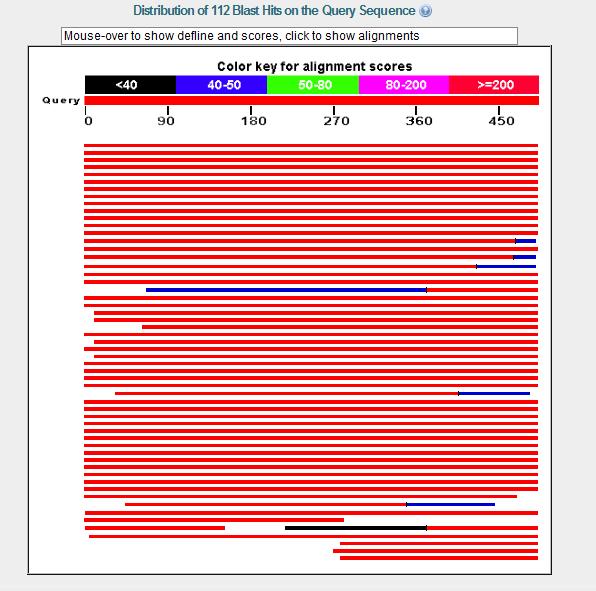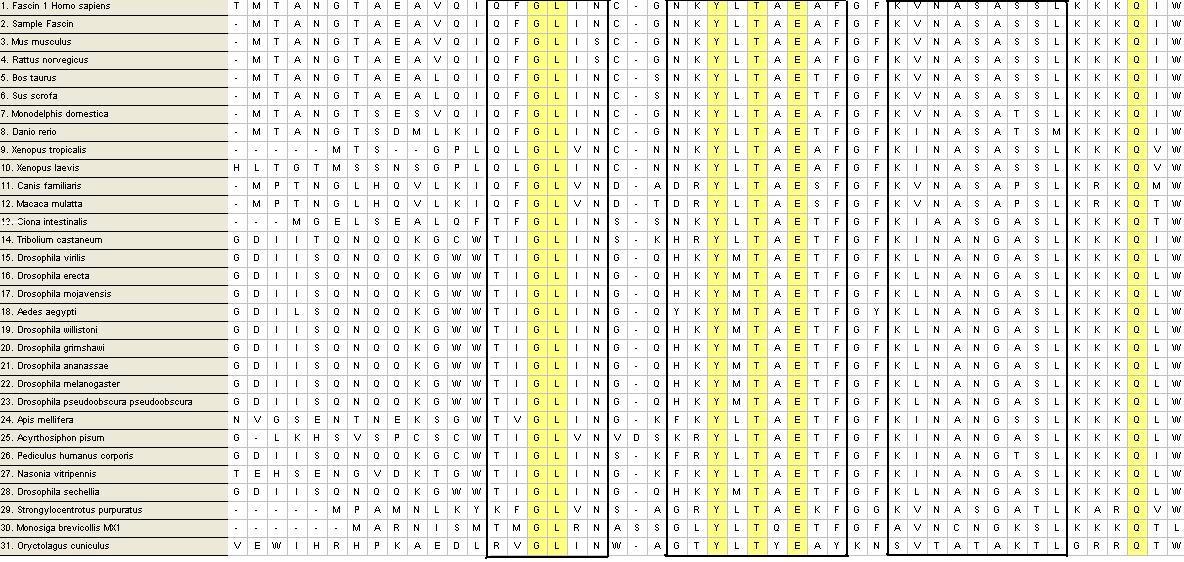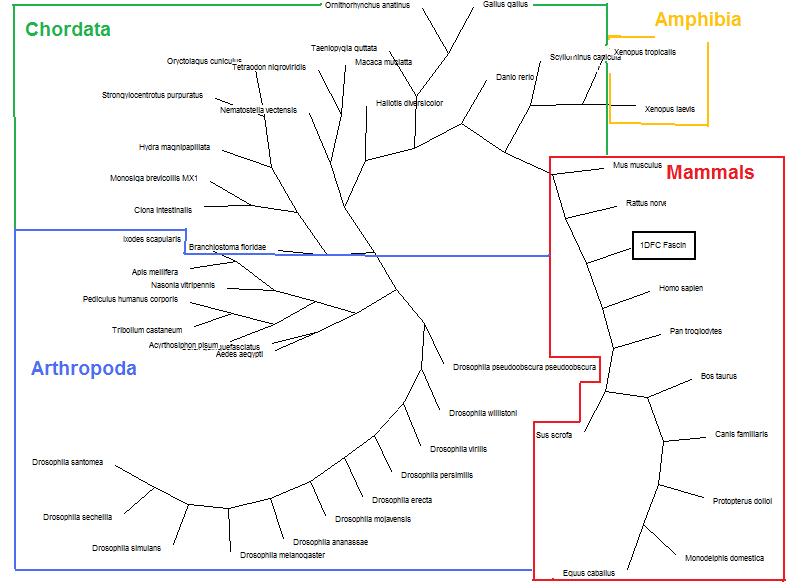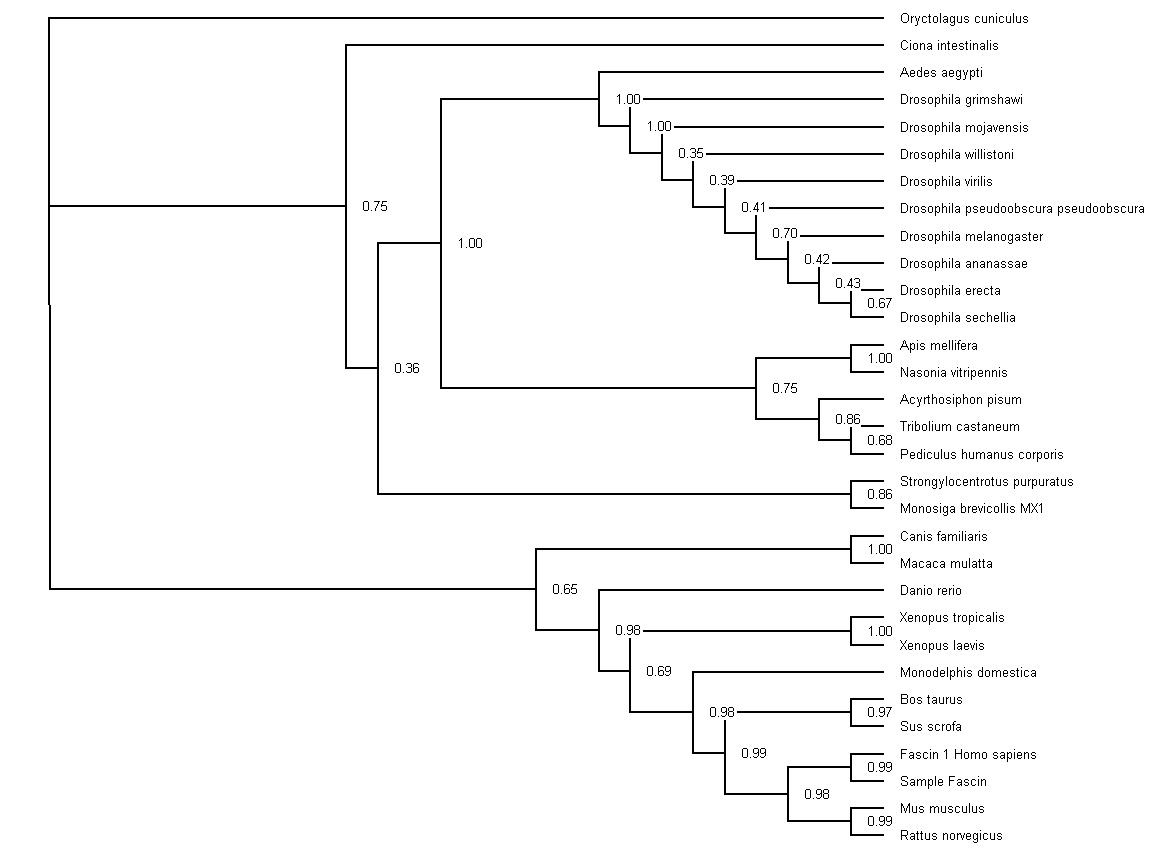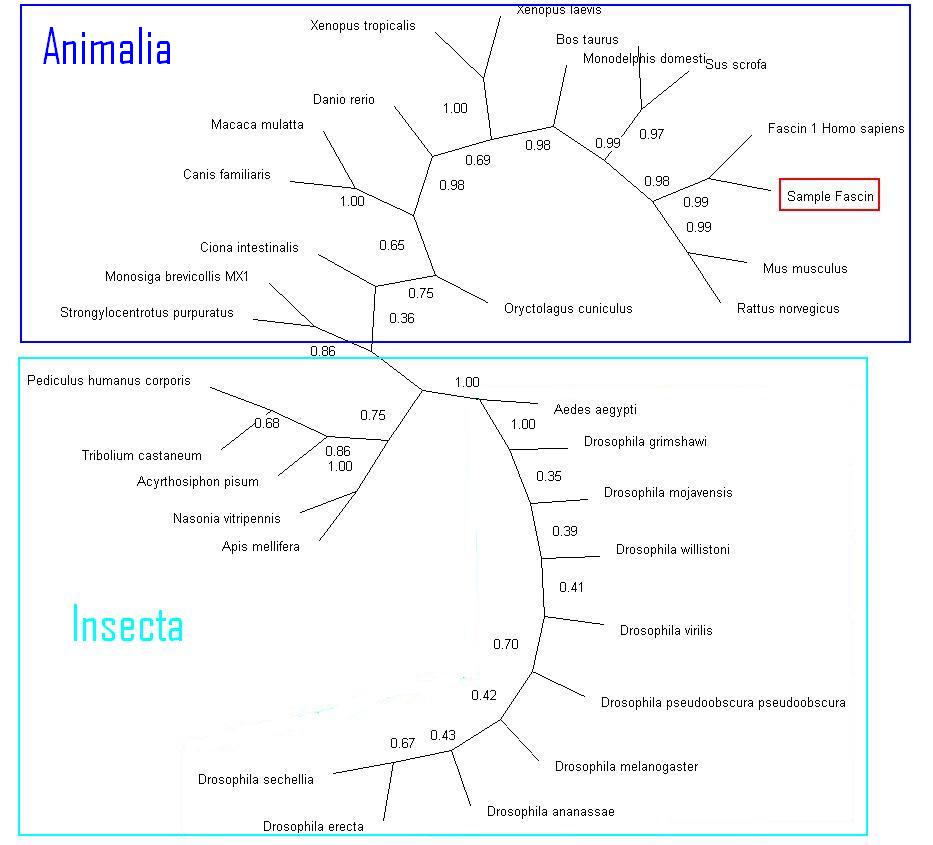Fascin Results: Difference between revisions
No edit summary |
|||
| Line 35: | Line 35: | ||
[[Image:Fascin_bootstrap_animaliainsecta.jpg]] | [[Image:Fascin_bootstrap_animaliainsecta.jpg]] | ||
[[Fascin 1 | Back to main page]] | [[Fascin Abstract | Abstract]] | [[Fascin Introduction | Introduction]] | [[Fascin Methods | Methods]] | [[Fascin Results | Results]] | [[Fascin Discussion | Discussion]] | [[Fascin Conclusion | Conclusion]] | [[Fascin Appendix | Appendix]] | [[Fascin References | References]] | ||
<br>[[Fascin 1 | Back to main page]] | |||
Revision as of 09:58, 15 June 2009
BLAST
Blast Results show that fascin 1 is very highly conserved throughout the Eukarya Domain providing 112 hits all with excellent E value and High scores
Sample Fascin sequence (Text File)
FASTA sequences from BLAST (Text File)
Multiple Alignment
From a possible 100 FASTA sequences, were cut down to 31. The process of elimination was conducted by the deletion of sequences with too many bp before and after the sample sequence, followed by the deletion of sequences with large segments of gaps in conserved and variable regions of the sequence alignment. Fascin domains were found via a protDOM search and compared to the remaining sequences.
Phylogeny Trees
Before any deletion of sequences occured, A tree was formed using 100-replications Dayhoff neighbor-joining method as a base line.
Neighbor-method with Bootstrap values (1 = 100) Results were run at 500 replications
Neighbor-method with Bootstrap values, compressed. Sequences with below 50 were deleted.
Abstract | Introduction | Methods | Results | Discussion | Conclusion | Appendix | References
Back to main page
